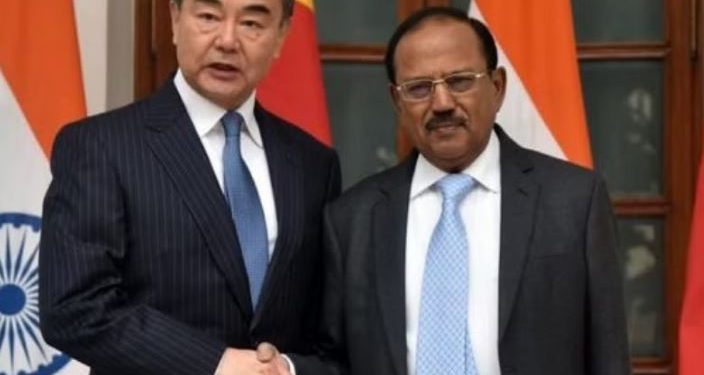Beijing: India’s National Security Advisor Ajit Doval arrived here Tuesday to hold talks with his Chinese counterpart and Foreign Minister Wang Yi as he takes part in the India-China Special Representatives’ talks to be held Wednesday, aimed at restoring the bilateral ties stalled for more than four years due to the military standoff in eastern Ladakh.
NSA Doval will hold the 23rd round of the Special Representatives’ (SR) talks with Wang Yi and was expected to discuss a range of issues to rebuild the bilateral ties following the October 21 agreement of disengagement and patrolling in eastern Ladakh between the two countries.
Ahead of crucial talks, China said Tuesday that it is ready to work with India to implement the commitments based on the common understandings reached between Prime Minister Narendra Modi and President Xi Jinping during their meeting at Kazan in Russia on the sidelines of the BRICS summit October 24.
When asked about the SR talks, Chinese Foreign Ministry spokesman Lin Jian told a media briefing that China is prepared to settle differences with sincerity.
“China is ready to work with India to implement the important common understandings between the leaders of China and India, respect each other’s core interests and major concerns, strengthen mutual trust through dialogue and communication, properly settle differences with sincerity and good faith, and bring bilateral relations back to the track of stable and healthy development as soon as possible,” he said.
The External Affairs Ministry said on Monday that as agreed during the meeting of the two leaders in Kazan on October 23, the two SRs will discuss the management of peace and tranquillity in the border areas and explore a fair, reasonable and mutually acceptable solution to the boundary question.
After the PM Modi-Xi meeting, which was their first after five years, External Affairs Minister S. Jaishankar and his Chinese counterpart met on the sidelines of the G20 summit in Brazil followed by a meeting of the Working Mechanism for Consultation and Coordination on China-India Border Affairs (WMCC).
The military standoff along the Line of Actual Control (LAC) in eastern Ladakh began in May 2020 and was followed by a deadly clash at the Galwan Valley in June of that year resulting in a severe strain in ties between the two neighbours.
Barring trade, relations between the two countries virtually came to a standstill.
The face-off effectively ended following the completion of the disengagement process from the last two friction points of Demchok and Depsang under an agreement finalised on October 21.
Wednesday’s SRs meeting is regarded as significant as it is the first structured engagement between the two countries to restore the relations.
The SRs meeting is taking place after a gap of five years. The last meeting was held in 2019 in Delhi.
Constituted in 2003 to comprehensively address the vexed dispute of the India-China border spanning 3,488 km, the SRs mechanism over the years met 22 times.
While success eluded it in resolving the boundary dispute, officials on both sides regard it as a very promising, useful and handy tool in addressing the recurring tensions between the two countries.






































